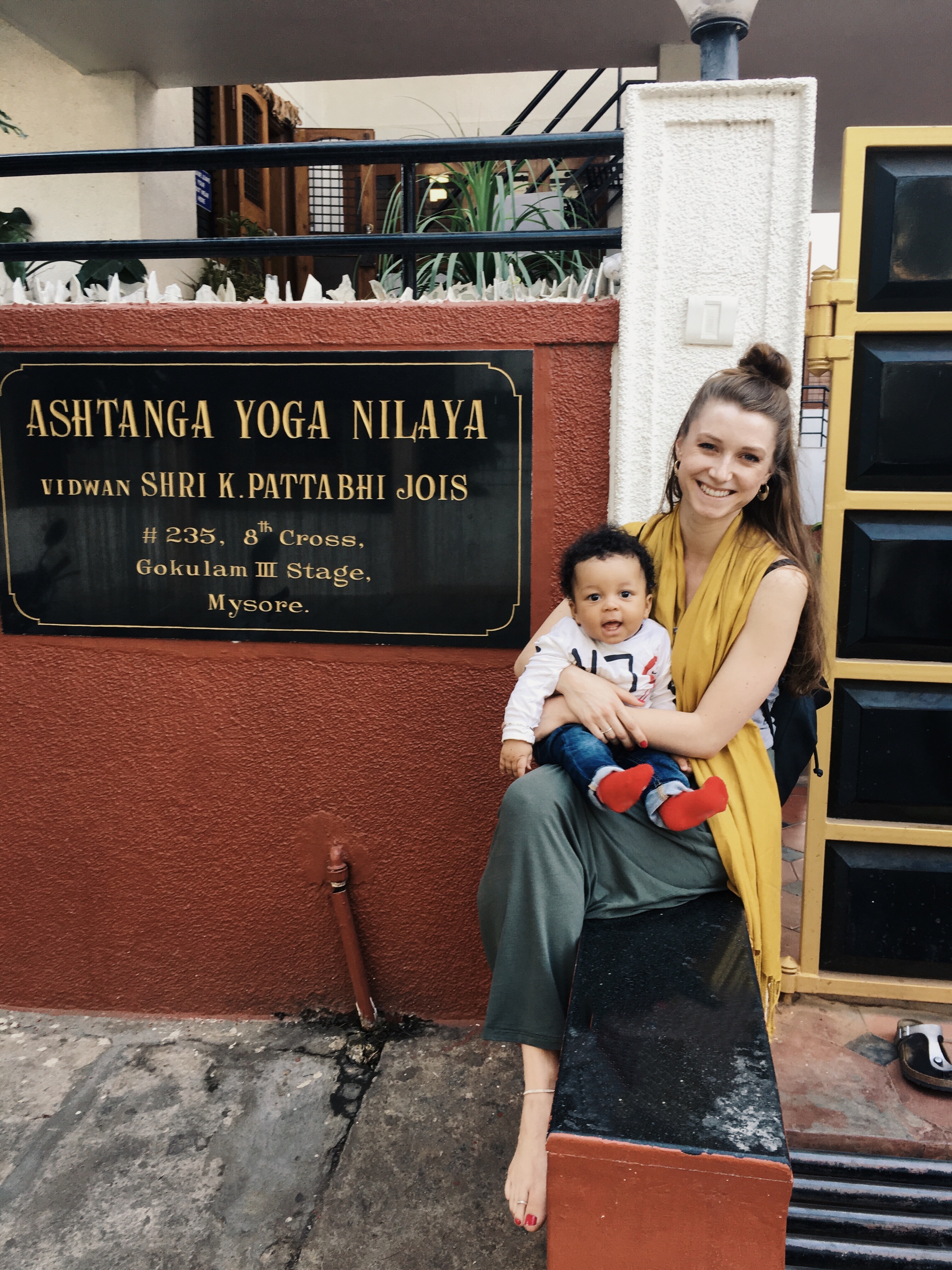Traditionally yoga practice is advised to be done first thing in the morning, ideally before sun rise. It wakes you up, gives you energy and puts you in a bright and motivated mindset for the day to come. Once you have a morning practice, you don’t want to miss it. As awesome as morning yoga is, though, it obviously comes with a big sacrifice: getting up early.
In order to fit in a morning yoga routine you have to set the alarm at least one to two hours earlier than you would normally do. In my case this means getting up at 5:00 am. But this is easier said than done. Lots of people struggle with getting up early (me included!) and end up pushing the snooze button or falling back asleep even though they really wanted to get up and practice. For all of you who are hitting the snooze button forever and never feel ready when the alarm goes off, let me tell you this: it is absolutely possible to get up easily and with no effort – even at as early as 5:00 am. In fact this is actually the most natural and healthy thing to do for your body and mind. Just follow these three habits and you will soon be jumping out of bed fresh, well-rested and without any effort. You’ll see.
1. get enough sleep
This might seem obvious but it’s a very important one, that I didn’t follow for the first year or so of practice. When you want to get up early and still want to feel fresh and well rested throughout the day you have to go to bed early enough. It won’t be easy to wake up in the morning if you haven’t had a fair amount of sleep. I know, though, that going to bed early is not easy. That’s why for a long time I used to stay up late and then forced myself to get up at 5 in the morning anyway, according to the motto “I can sleep when I’m dead.” However, this will make you feel drained and weary after time and might lead to giving up on the practice altogether. Sleep deprivation will ruin all the amazing benefits the morning yoga practice would have on you. So make sure you go to bed early.
2. Take a look at your evening habits
If going to bed early sounds like an impossible sacrifice to you, ask yourself which time is better used, the two hours late at night before you go to sleep or the two hours of yoga in the morning? What are you really doing in those two hours before you go sleep? And is this time more valuable and beneficial to you than the time in the morning you can use to practice?
After I observed myself for a while to find out what I’e really been doing before going to sleep, I realised that I actually tended to waste a few hours every night watching Netflix, surfing on the Internet or scrolling through social media. So I figured saving this time in the evening and investing it in the morning for practice is much more beneficial to me and my life. This was what really convinced me to finally go to bed earlier.
Try it yourself. Observe your evening habits and make your own decision on how you want to spend your precious life time.
3. Follow the Ayurvedic Energy Clock
Ayurveda is the sister science of yoga and can be translated as “the art of living”. It provides an immense treasure of wisdom on all different types of living and eating habits, as well as healing methods and remedies for ailments which altogether show how to live a happy and healthy life. According to Ayurveda all of nature is made up of the three doshas (constitutions), which are Vata (air), Pitta (fire) and Kapha (earth and water).
On that note also a day consists of these three dosas, which is why Ayurveda associates certain hours of the day with one of the three Doshas. Depending on which of the doshas is predominant at the time of the day, certain habits like eating, sleeping or exercising are advised or not advised to do. When it comes to sleeping we have to take a closer look at the Kapha times of the day, which is when the Kapha and therefore more of a heavy and sluggish energy is predominant. It is said that the time from 6 to 10 am and pm are the Kapha times of the day. Kapha time is recommended for going to sleep but not for getting up. That’s why it is generally recommended to go to bed before 10 pm and get up before 6 am. We want to go to bed when it’s still Kapha time because that’s the natural time for the body to slow down and rest, and it is therefore easier to fall asleep. In the morning then, it is recommended to get up before 6am, that means before Kapha time starts, where it would be much harder to get up.
In my own experience this has actually proven to be true. Since I try to go to sleep before 10 pm and set my alarm before 6 am I find it much easier to both, fall asleep at night and get up in the morning. So give it a try. Ancient wisdom might hold true for you too.
4. Be consistent
Finally, what will make it much easier to get up early over time is being consistent and sticking to a regular sleeping schedule. If you go to bed at the same time every night and wake up at the same time every morning, your body will get so used to it over time. With a little bit of consistency and patience it soon will be no big deal anymore and your body will kind of automatically wake up in the morning.
This does not work, though, if you only wake up at the same time every morning but go to bed at different times each night. Your body and mind need both times to develop a rhythm that will feel naturally over time. Also, consistency implies avoiding napping at day-time, as well as sleeping in or staying up late on the weekend. Of course everything comes with exceptions, but just know that with each exception, your body will have a harder time adapting to your sleeping schedule and hence, waking in the morning will be harder too.
Whatever your body gets used to will become easy over time. This applies to yoga poses just the same as to waking up in the morning. The four habits above really helped me to stay healthy, motivated and well-rested over the years of morning practice. May the help you same way! All the best for your practice, Kerstin




